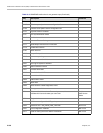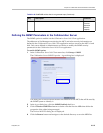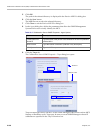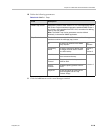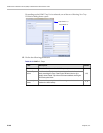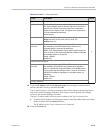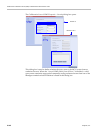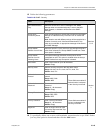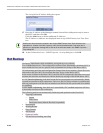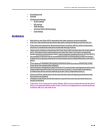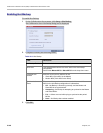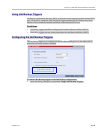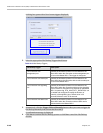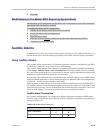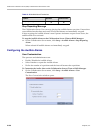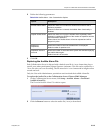
RealPresence Collaboration Server (RMX) 1500/2000/4000 Administrator’s Guide
21-44 Polycom, Inc.
The Accepted Host IP Address dialog box opens.
17 Enter the IP Address of the Manager terminal from which valid queries may be sent to
the MCU, and then click OK.
Click the Add button to define additional IP Addresses.
The IP Address or Addresses are displayed in the Accept SNMP Packets from These Hosts
box.
18 In the Collaboration Server - SNMP Properties - Security dialog box, click OK.
Hot Backup
Hot Backup implements a high availability and rapid recovery solution.
Two Collaboration Server’s are configured in a Master/Slave relationship: the Master MCU is
active while the Slave acts as a passive, fully redundant Hot Backup of the Master MCU.
All conferencing activities and configuration changes that do not require a System Reset are
mirrored on the Slave MCU five seconds after they occur on the Master MCU.
In the event of failure of the Master MCU, the Slave MCU transparently becomes active and
assumes the activities and functions with the backed up settings of the failed Master MCU.
In AVC-based conferencing, both dial-in and dial-out participants are automatically dialed
out and reconnected to their conferences. However, the Hot Backup solution is optimized for
dial-out participants as all the dial-out numbers are defined in the system and are available
for redialing.
In SVC-based conferencing, since dial-out is unavailable, SVC-enabled endpoints will have
to manually reconnect to the conference.
The following entities are automatically backed up and updated on the Slave MCU:
•
Ongoing Conferences
—
Layout
—
Video Force
—
Participant Status (Muted, Blocked, Suspended)
•
Reservations
•
Meeting Rooms
•
Entry Queues
•
SIP Factories
•
Gateway Profiles
•
IVR services (excluding .wav files)
Queries sent from terminals not listed in the Accept SNMP Packets from These Hosts box are
regarded as a violation of the MCU security, and if the Send Authentication Trap check box is
selected, an appropriate message will be sent to all the terminals listed in the SNMP Properties –
Traps dialog box.



